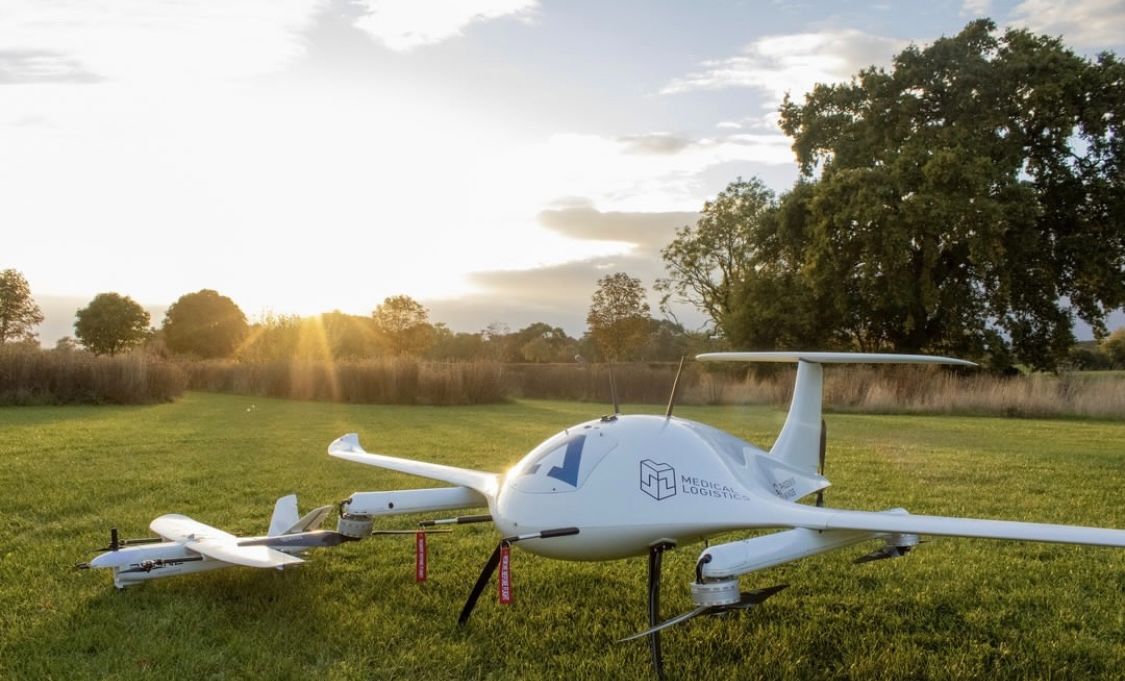Public sector automation 'would kill off 250,000 jobs'
AI could replace 30% of nurses and doctors, says Reform

Automating the public sector would reduce the workforce by almost 250,000 roles, increase efficiency and save the economy billions of pounds, according to a new think tank report.
Reform's report argues that emerging communication technology and AI could replace up to 90% of Whitehall and NHS administrators by 2030, saving over 4 billion a year in wages.
The integration of back office admin technology across multiple practices could also reduce GP receptionist numbers by 24,000.
According to the report's statistics, only 1,640 roles in the 127,000-strong police workforce belong to administrators, however up to 1,590 of these could be replaced by automated technology.
Frontline roles would also be at risk, as technology is now able to perform data collection, and other hardware innovations are capable of administering non-intravenous medications and even anaesthesia during procedures more efficiently than human counterparts. Up to 30% of nurses and between 13% and 31% of doctors could lose their jobs as a result.
"The report finds that the current workforce is a legacy of past approaches. It is built around siloed attitudes of yesterday's governments and fails to embrace technology and new ways of working to meet user's needs in the most effective ways," the Reform press release read.
"That there is one receptionist for every GP should be alarming in a world in which online banking is the norm."
Get the ITPro daily newsletter
Sign up today and you will receive a free copy of our Future Focus 2025 report - the leading guidance on AI, cybersecurity and other IT challenges as per 700+ senior executives
If many of the roles were to be automated, NHS staff would be able to focus on the highest-risk patients and reduce the need for unnecessary hospital admissions, the report argues.
The proposals would engender a completely new approach to the way the UK public sector operates, with flatter hierarchies and less middle management. The report highlights the "agile" approach of the Government Digital Service, which it praises for its work on "self-management teams".
Over 20% of public-sector roles involving "cognitive" decision making and identifying patterns could be better performed by automated technology, Reform said, calling for a 'gig' economy, where workers support themselves "through a variety of flexible jobs acquired on online platforms". This would represent a shift towards a more private sector-style approach to organisational structure, including the use of "shared kitchens and feedback boards" that would "enable spontaneous interactions that will support a new culture of public service innovation".
"Such a rapid advance in the use of technology may seem controversial, and any job losses must be handled sensitively," said Alexander Hitchcock, co-author of the report. "But the result would be public services that are better, safer, smarter and more affordable."
Dale Walker is a contributor specializing in cybersecurity, data protection, and IT regulations. He was the former managing editor at ITPro, as well as its sibling sites CloudPro and ChannelPro. He spent a number of years reporting for ITPro from numerous domestic and international events, including IBM, Red Hat, Google, and has been a regular reporter for Microsoft's various yearly showcases, including Ignite.
-
 Bigger salaries, more burnout: Is the CISO role in crisis?
Bigger salaries, more burnout: Is the CISO role in crisis?In-depth CISOs are more stressed than ever before – but why is this and what can be done?
By Kate O'Flaherty Published
-
 Cheap cyber crime kits can be bought on the dark web for less than $25
Cheap cyber crime kits can be bought on the dark web for less than $25News Research from NordVPN shows phishing kits are now widely available on the dark web and via messaging apps like Telegram, and are often selling for less than $25.
By Emma Woollacott Published
-
 ‘Archaic’ legacy tech is crippling public sector productivity
‘Archaic’ legacy tech is crippling public sector productivityNews The UK public sector has been over-reliant on contractors and too many processes are still paper-based
By Emma Woollacott Published
-
 Public sector improvements, infrastructure investment, and AI pothole repairs: Tech industry welcomes UK's “ambitious” AI action plan
Public sector improvements, infrastructure investment, and AI pothole repairs: Tech industry welcomes UK's “ambitious” AI action planNews The new policy, less cautious than that of the previous government, has been largely welcomed by experts
By Emma Woollacott Published
-
 UK government trials chatbots in bid to bolster small business support
UK government trials chatbots in bid to bolster small business supportNews The UK government is running a private beta of a new chatbot designed to help people set up small businesses and find support.
By Emma Woollacott Published
-
 Operational efficiency and customer experience: Insights and intelligence for your IT strategy
Operational efficiency and customer experience: Insights and intelligence for your IT strategyWhitepaper Insights from IT leaders on processes and technology, with a focus on customer experience, operational efficiency, and digital transformation
By ITPro Published
-
 Saving the NHS with tech: 5G healthcare and virtual wards
Saving the NHS with tech: 5G healthcare and virtual wardsCase study Can technology cure Britain’s ailing healthcare service? Our three-part series examines how technology can lift Britain’s healthcare system out of its current crisis
By Barry Collins Published
-
 Saving the NHS with tech: Making blood deliveries by drone
Saving the NHS with tech: Making blood deliveries by droneCase Study Can technology cure Britain’s ailing healthcare service? Our three-part series examines how technology can lift Britain’s healthcare system out of its current crisis
By Barry Collins Published
-
 Nvidia rolls out AI platform across NHS hospitals
Nvidia rolls out AI platform across NHS hospitalsNews The platform ensures that patient data never leaves the hospital trust when an AI algorithm analyses medical records
By Zach Marzouk Published
-
 NHS adopts predictive AI tech from controversial startup
NHS adopts predictive AI tech from controversial startupNews The technology warns hospitals about a potential spike in patient numbers so they can allocate the right resources when needed
By Zach Marzouk Published